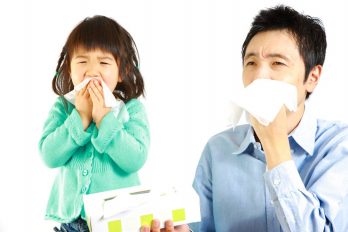Protecting your child from influenza is important every year but is even more important this year with the added concerns of COVID-19 still swirling across the United States. Those who are already sick with influenza may find it even more difficult to fend off a COVID-19 infection and could end up with more serious health concerns. Additionally, it is important to decrease as much work for medical teams around the country as possible to free up resources for fighting the novel coronavirus. Here are a few ways that you can protect your child this fall and winter.
First and most importantly, be sure that your child receives an influenza vaccine.
October is an excellent month to get this shot as it should last through the rest of the influenza season. However, even if your child does not get the shot this month, your doctor will still be able to give it in later months. According to the CDC, very young children, especially those younger than 5, are at high risk of developing serious complications should they develop influenza. Your child can receive an immunization as long as he is at least six months old.
Second, you can still take numerous steps to prevent an outbreak of influenza in your family even after family members get the influenza vaccine.
Stay away from sick family members and friends, and stay at home yourself if you are feeling under the weather.
Teach your child to cover his coughs and sneezes with a tissue or his arm. Tell him to wash his hands for at least 30 seconds after blowing his nose. Singing Happy Birthday while washing up can be an easy way to measure the correct amount of time.
Finally, be sure to keep frequently touched surfaces in your home clean and disinfected at all times.
This is particularly important if someone in your family is sick, but it should be done regularly even when you all are healthy. Use disinfecting wipes or sprays to clean doorknobs, light switches, countertops, and faucet handles.




